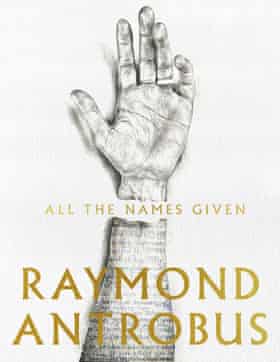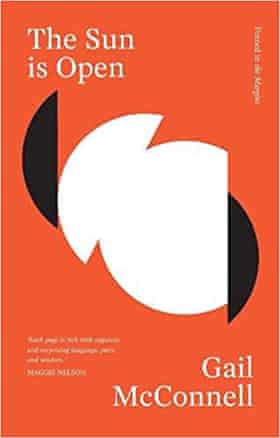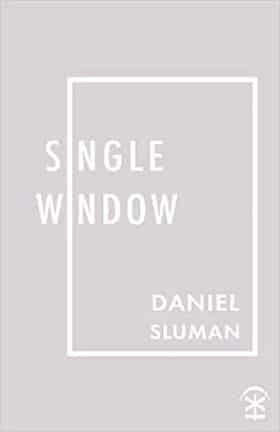 |
| Raymond Antrobus explores love, marriage and brotherhood in All the Names Given. Photograph: Suki Dhanda |
The best recent poetry – review roundup
All the Names Given by Raymond Antrobus; The Sun Is Open by Gail McConnell; Single Window by Daniel Sluman; The Kids by Hannah Lowe
Mary Jean ChanFri 3 Sep 2021 12.00 BST

Raymond Antrobus’s second collection, All the Names Given (Picador), builds on themes in his award-winning debut, The Perseverance, including meditations on the d/Deaf experience. In this book, Antrobus brings history to bear on the present through references to poets ranging from William Blake to Kamau Braithwaite, exploring love, marriage and brotherhood, as well as colonial inheritance, racism, ableism and intergenerational trauma. In “Plantation Paint”, Antrobus responds to “Plantation Burial”, an artwork by the 19th-century painter John Antrobus, and wonders how one might make sense of a surname “so anciently English that it has become foreign to itself”. The speaker asks: “Tell me if I’m closer / to the white painter / with my name than I am / to the black preacher, / his hands wide to the sky, / the mahogany rot / of heaven”. These lyric poems are also linguistically innovative, spanning standard English, Jamaican patois and British sign language. Elsewhere, a sequence of caption poems inspired by Deaf sound artist Christine Sun Kim serves as an important riposte to the hegemony of our hearing-centric world:
[sound of strangers arriving]
[squirming in suit]
[sound of light between us]
Moving deftly between tenderness and violence, hope and grief, praise and lament, this is a deeply evocative collection that will linger in the reader’s mind.

Gail McConnell’s first full-length collection The Sun Is Open (Penned in the Margins) is a vivid exploration of the intricacies of grief surrounding a beloved father’s murder by the IRA in Belfast, 1984. These fragmentary and visually striking sequences cohere into prose poems and concrete poetry, some featuring lacunae or using found text to evoke an almost unspeakable loss. Through collage and quotation, McConnell enables the deceased to speak again, with entire lines lifted from her father’s undergraduate diary. After one such poem, the speaker verbalises the anti-lyric sentiment at the heart of this unique approach to elegy: “copy all this out / and I won’t have to address you”. While the lyric is aimed at an addressee, elegiac writing cannot hope to be heard by those who cannot respond. As Declan Ryan observed of Emily Berry’s Stranger, Baby: “An elegy is a want that can never be answered.” In this devastating yet immersive book, McConnell skilfully utilises juxtaposition, understatement and negative space to offer us an intimate work of poetic testimony.

Daniel Sluman’s third collection, Single Window (Nine Arches), is a book-length poem meditating on “the loneliness and fear experienced by disabled people living in Tory Britain”, drawn from his and his wife Emily’s experiences over the last five years. Using the seasons as a framing device, Sluman documents the painful minutiae of life lived indoors: “we count down the seconds / before our pills sing their gospel inside us”. Hours later, another bleak ritual: “all day we drink tea piled with sugar / & wake in yesterday’s clothes / to this piss-bright sunrise”. There is a luminosity to this world that is otherwise suffused with suffering, illustrated by intermittent photographs: a syringe next to a box of morphine sulphate, or a pair of crutches leant against a wall. Describing a carer’s visit to the house, the speaker confesses: “a middle-aged woman peels off our socks / & strips us layer by layer / like she’s fleecing sheep”, an act that requires precision as well as a practised but jarring detachment. Overall, an encounter with this book will leave one feeling “quiet / as a broken bone knitting back together”.
Hannah Lowe’s previous two collections, Chick and Chan, focused on her relationship with her Jamaican-Chinese father, alongside coming-of-age recollections. The Kids (Bloodaxe) marks a departure: an introspective book of modern sonnets, it offers a glimpse into her experiences of teaching in an inner-city London sixth form. The collection includes homages to her own teachers, and concludes with a sequence lovingly written for her young son Rory. In “Sonnet for the A Level English Literature and Language Poetry Syllabus”, Lowe conveys the combination of dedication and exasperation: “all summer term reading poems – / down in the mud / of words, wanting / the kids to hear what I heard – / breaking the poems apart, slapping / their parts to the board – ” Elsewhere, her work takes a more tender turn: “I find him balancing / a handful of bubbles back to bed. It is /so hot, and why have the birds stopped singing / darling? Who can sleep on a night like this?” This is a playful yet moving collection that will make the reader frown and laugh, sometimes both at once.


No comments:
Post a Comment